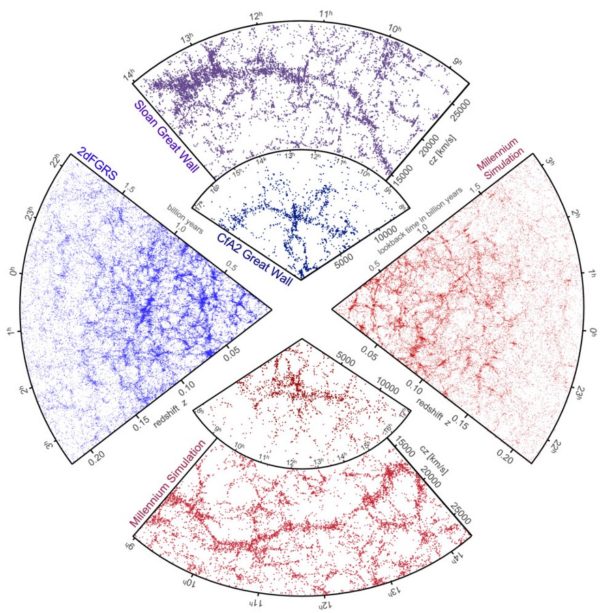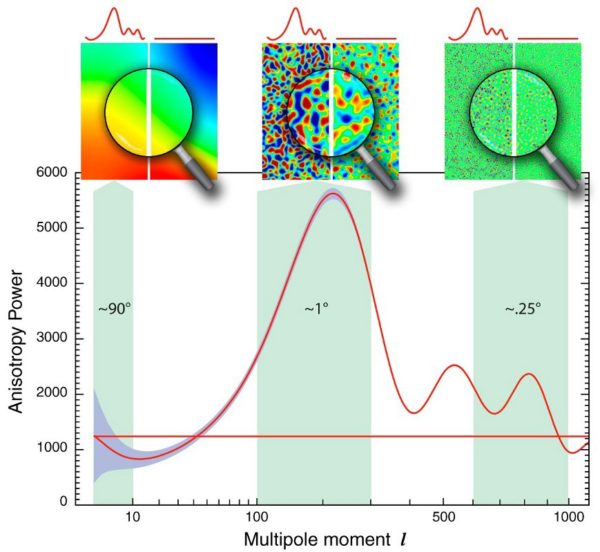“First, you should check out my house. It’s, like, kinda lame, but way less lame than, like, your house.” -Lumpy Space Princess, Adventure Time
Billions of years ago, before the Universe contained clusters, galaxies, stars or even neutral atoms, everything was uniform. Almost perfectly uniform, where the densest regions weren’t even 0.01% denser than average. Over billions of years, those overdense regions have attracted more and more matter and grown under the influence of gravity.
 Both simulations (red) and galaxy surveys (blue/purple) display the same large-scale clustering patterns. Image credit: Gerard Lemson & the Virgo Consortium, via http://www.mpa-garching.mpg.de/millennium/.
Both simulations (red) and galaxy surveys (blue/purple) display the same large-scale clustering patterns. Image credit: Gerard Lemson & the Virgo Consortium, via http://www.mpa-garching.mpg.de/millennium/.
By today, we have the incredible rich, clumpy, structured Universe we exist in. But what about a more perfect Universe, one that was totally uniform? Could that have given rise to us? And if not, what is the limiting factor? It’s a fascinating question, and one science can answer.


I remember reading one of the Feynman Lectures on Physics, where Richard Feynman mentions: “…the true explanation of the near symmetry of nature is this: that God made the laws only nearly symmetrical so that we should not be jealous of His perfection!”
And it turns out that asymmetry is actually the origin of all creation. If the laws of the universe were perfectly symmetrical the universe would be empty.
@Ethan wrote
Does the Axis of Evil indicate a bias in quantum fluctuations?
Why, that's almost as flat as the Earth's surface! :)
http://phys.org/news/2016-12-verlinde-theory-gravity.html
Verlinde's new theory of gravity passes first test
Bye Bye dark matter
Yeah, sorry, AC, Feynman didn't think that isotropy proved god. Because your elision starts "We might like to turn the idea around and think that..." and then your quote.
BAD DOG.
Why does he presume that dark energy would have the exact same value in this hypothetical universe as it does in ours?